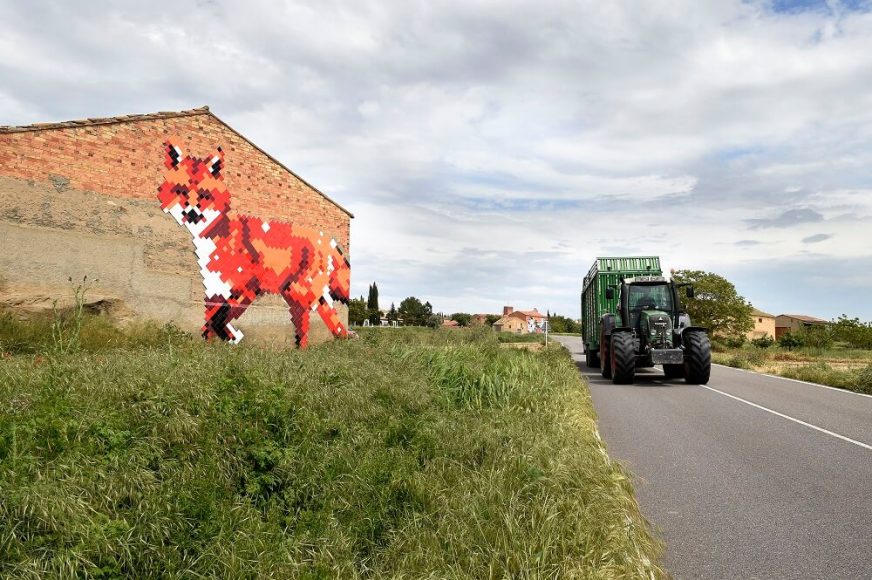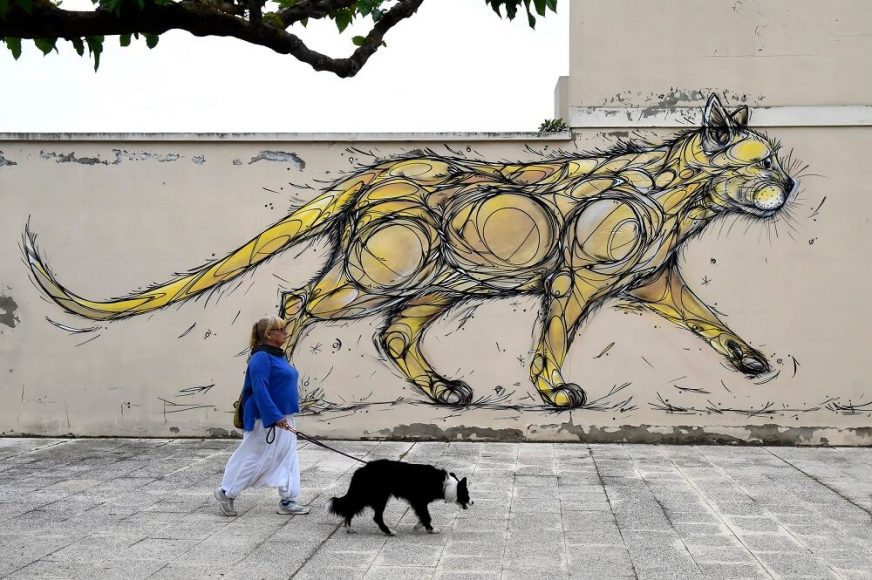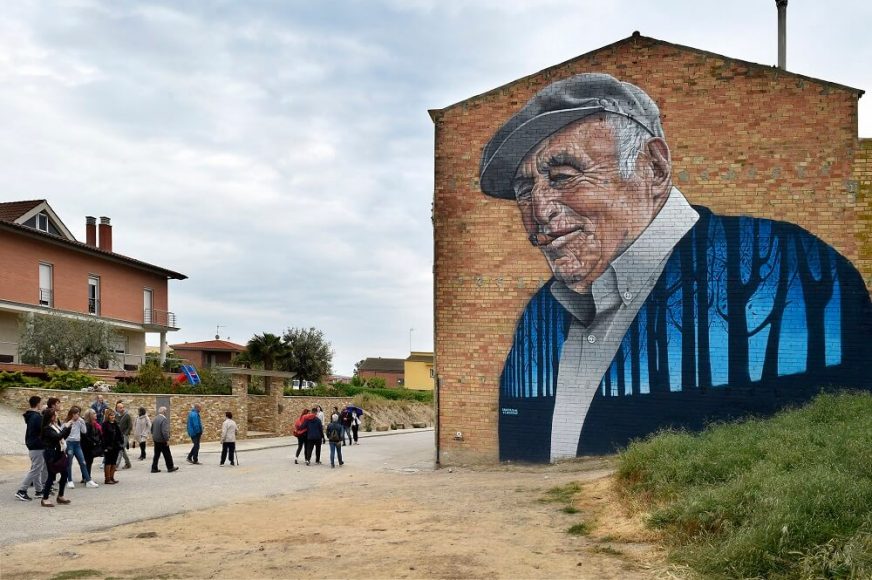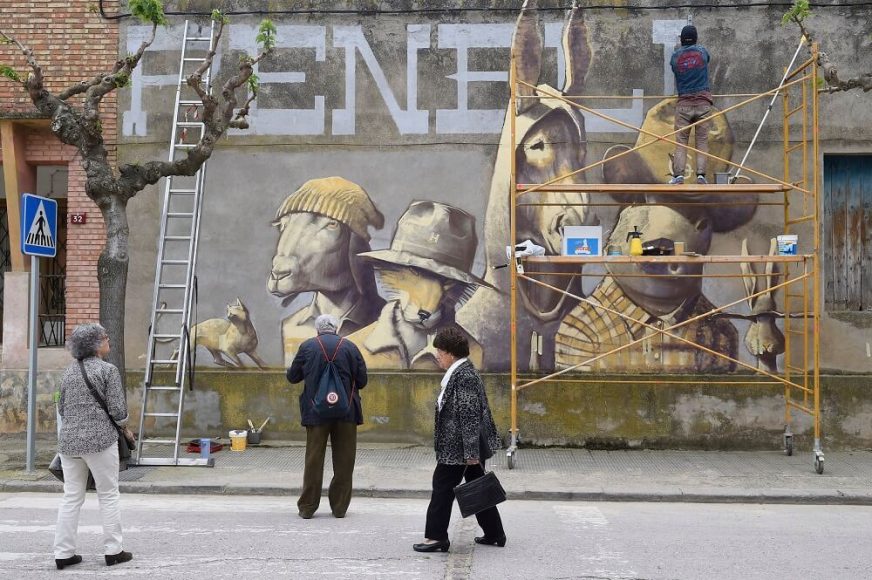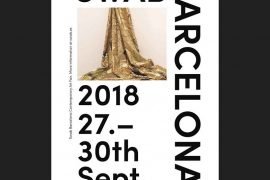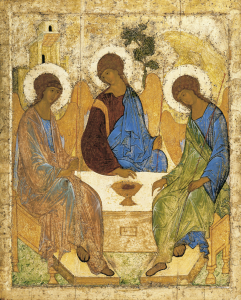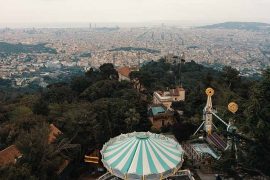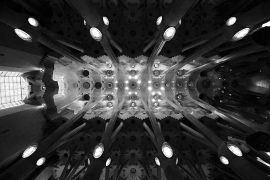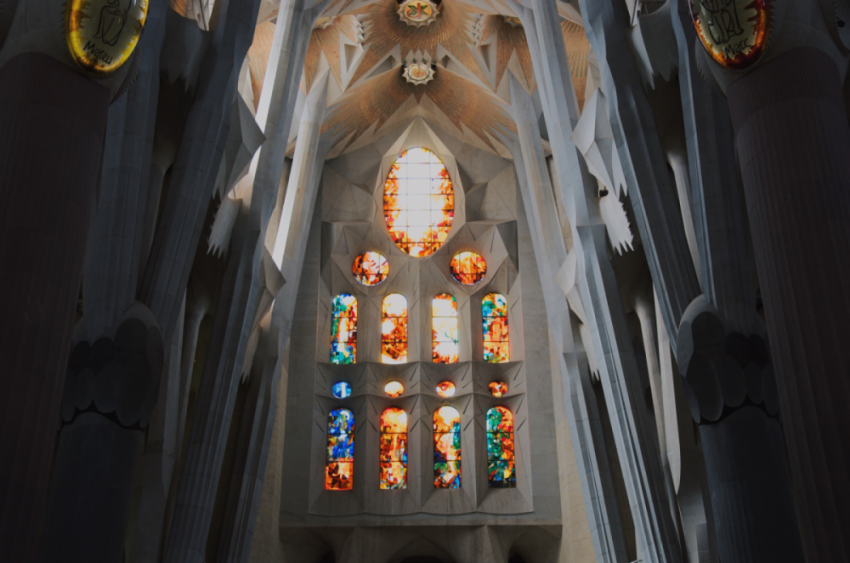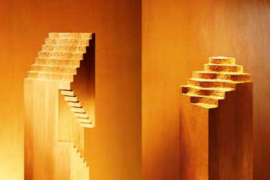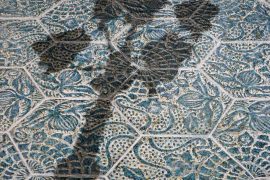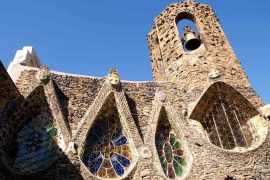[dropcap letter=”P”]
enelles, in La Noguera, is home to under 500 inhabitants but has become a hub for street art with an international following. Or rural art, as Mar López Pinto and Jordi Solsona call it. These two Barcelona-based freelancers with ties to the village are the ones behind this project that has transformed the look of the whole town. “We wanted to bring this type of art, which is most commonly found in big cities, into more rural areas and use it to revitalise the economy in this small town.” And have they ever.
For the past three years, the town has hosted the Gar Gar Festival on the first weekend in May. This event, which pays tribute to rural art and murals, has revolutionised the town, which now has more than fifty façades decorated with the most innovative urban art. This year, 25 artists from around the world participated, leaving their mark on the homes in Penelles and filling the streets of this town that previously had no tourist attractions worth mentioning.
One of the pioneers, and already a friend of Penelles, is French visual artist Zeso, who spent more than a decade painting in New York. He is one of the most influential graffiti artists in global muralism and decorated a wall in the town the first year the festival was held. This year, he inaugurated the exhibition hall accompanying the festival with his show NewYork Penelles. What do New York and Penelles have in common? “Nothing, they’re polar opposites. Well, only the graffiti on the walls,” Zeso answered, smiling. He spent four months in the town this winter as its first ‘artist in residence’. “I moved here and created an installation that allows residents to interact with the art piece,” he explains.
Zeso is the artist behind one of the murals in the centre of the town, which features an urban re-envisioning of Alice in Wonderland. But over these three years, more than 50 of the town’s walls now feature works by national and international artists, including Taker One, Mina Hamada&Zosen, TV Boy, JFAR and many others. There are many different styles, from realism to still life, abstract to geometric, but all of them are tied to the theme of the rural and natural world. “We were surprised that international artists, who normally don’t ever participate in festivals, wanted to come specifically to Penelles because they were excited to leave their mark on a town that is making waves on the international street-art scene,” explains Mar, the curator of the festival.
This year’s participants were chosen from the 280 applications received from graffiti artists around the world, who submitted “top-notch proposals”, further complicating an already difficult process that includes emerging local artists like Swen Art and Llukuter. “Most of the artists chosen are in it for their love of the art, as they only get enough to cover their materials,” Mar continues. Only those considered the ‘headliners’ at each festival have their travel expenses and accommodation at the festival covered as well.
“For us, it’s also very interesting for Penelles residents to host the artists in their homes and share their feelings and experiences,” Jordi says. And that has an impact on their ability to enjoy street art. “It’s curious to see that people who aren’t from the town will ask you what you are painting and question it if they don’t understand. But people from Penelles just wander around, look at the paintings, get the idea and aren’t surprised by the result,” explains Vorja Sánchez, an artist who painted wall near the church this year, drawing inspiration from the organic shapes he found in the town and using similar colour tones to those on the temple.
Five years ago, no one would have thought that a rural bastion in the heart of La Noguera, Urgell and Pla d’Urgell would have more graffiti per capita than any municipality in the country. It works out to one mural per 7 inhabitants, which is not something just anyone can say.
The town has approached the project enthusiastically and one of the few conditions it imposes on the participants is that their creations portray the rural and agricultural world. “We also recommend they don’t deal with political or religious issues because we want the art to be respectful of the people who will be living with them every day,” explains Eloi Bergós, mayor of the town.
Five years ago, no one would have thought that a rural bastion in the heart of La Noguera, Urgell and Pla d’Urgell would have more graffiti per capita than any municipality in the country. It works out to one mural per 7 inhabitants, which is not something just anyone can say. Now, after three editions of the Gar Gar Festival, wandering around the streets of the town has become like visiting an open-air art museum, where any façade or surface may surprise you with a spray-painted work by one of the dozens of graffiti artists who have left their mark in Penelles.
Furthermore, the festival is gradually becoming a not-to-be-missed meeting point for the world of urban art. The artists work side-by-side for hours and days, which gives them the chance to meet and share their experiences. “I’m from Hungary and it’s great for me to participate in Gar Gar because I can see what kind of things people are doing here, share our work and promote my pieces,” explains Taker One, who painted the mural of a wolf that presides over one of the town façades. This type of festivals “are more common in big cities like New York, Philadelphia, London…” explains this artist, hitting on the key to Gar Gar’s success: being able to de-contextualise this intrinsically urban art to adapt it to a small town in La Noguera.

